pilipphoto/iStock/GettyImages
Recipe Ideas and Storage Tips for Raw Chicory
Raw chicory leaves work well in salads or stuffed as appetizers. But chicories tend to be bitter, so take care when choosing flavors to complement them. Because chicories have strong flavor, they work well paired with other boldly flavored ingredients such as mustard or bacon, or mixed with other greens that tend towards bitterness, such as arugula. Chicory's bitter flavor can be an acquired taste, and creating a successful dish often depends on successfully balancing this bitterness with other flavors such as sweet, sour and salty.
Storing and Preparing Raw Chicory
Raw chicory is especially flavorful in late fall and early winter. The tips of the leaves should be crispy, and there should be no browning where the firmer ends of the leaves bunch together. Raw chicory will stay its most crisp and flavorful if you don't separate the leaves from the bunched head or rinse the greens until soon before serving. Store chicory in a plastic bag to keep it moist, and keep the plastic bag in the crisper drawer of your refrigerator. Raw chicory will stay fresh in your refrigerator for about a week.
Types of Chicories
The chicories most commonly eaten raw may have curly or smooth, broad leaves. Curly leaf varieties include escarole, curly endive and frisee. These curly chicories can be used in salads, and work especially well when shredded. Slicing raw, curly chicory into fine shreds helps moderate potential bitterness by limiting the amount you taste at once, and this technique also makes it easier to integrate the pieces of chicory with other ingredients and flavors. Chicory also comes in long, smooth leaves such as Belgian endive. These can be shredded, but their sturdiness and size makes them ideal for stuffing with other ingredients, such as pastes made of soft cheeses mixed with ham, bacon or anchovies.
Raw Chicory Root
The root of the chicory plant can also be enjoyed roasted and brewed into a hot beverage that has been used traditionally as a coffee substitute. Because roots are more dense than leaves, the natural bitterness of chicory is especially pronounced in the root. Roasting mellows this bitterness and makes it palatable, even appealing. Raw chicory root is sometimes used as a dietary supplement because it is rich in inulin, a high-fiber nutrient that can be beneficial to digestion. But it should be taken in small amounts, especially if you don't commonly take prebiotics or probiotics.
Related Articles
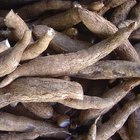
How to Cook Yucca Root

Can You Eat Celery Root Without Cooking ...

How to Juice a Daikon Radish

How to Add Chicory to Coffee
Substitutes for Frisee Lettuce
How to Freeze Bok Choy
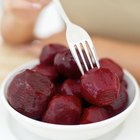
How to Boil Beetroot

How to Cook Brussel Sprout Greens

How to Tell When Okra Is Ripe

How to Cook Chard

How to Cook Mixed Greens
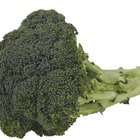
How to Eliminate Bitterness in Broccoli

How Long Do You Boil Baby Artichokes?

Types of Taro

How to Cook Fresh Turnip Greens

How to Cook Endives

How to Mince Celery
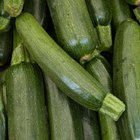
How to Clean Zucchini

How to Shred Brussels Sprouts
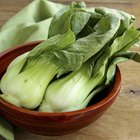
Bok Choy Nutrition
References
Writer Bio
Devra Gartenstein is a self-taught professional cook who has authored two cookbooks: "The Accidental Vegan", and "Local Bounty: Seasonal Vegan Recipes". She founded Patty Pan Cooperative, Seattle's oldest farmers market concession, and teaches regular cooking classes.